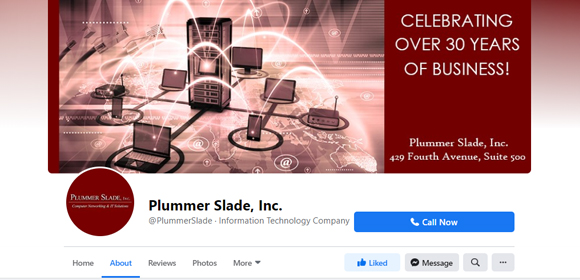February 19, 2015 — Technology is continuously changing the way we communicate with one another, both in our personal and professional lives. It is crucial that attorneys familiarize themselves with these communication tools in order to understand how to protect themselves and their clients in this digital age. Using the Pennsylvania Rules of Professional Conduct as a roadmap, the Pennsylvania BAR Association has issued a formal opinion (F.O. 2014-300) that examines social media and what is to be considered appropriate and ethical use by attorneys.
Social media sites can be a useful and relatively inexpensive way for a lawyer to get his or her name out to their publics. Sites like LinkedIn and Facebook allow users to endorse or review the skills and performance of an attorney. While it was found that attorneys can receive honest, accurate endorsements from both clients and peers, an attorney is responsible for monitoring and removing inaccurate reviews or endorsements. Attorneys may also solicit reviews from clients but must adhere to Rule 7.2 in regard to endorsements by celebrities, public figures and disclosure of a paid endorsement. Also, while it is not forbidden to connect with judges on social networking sites, the Committee cautions against this to avoid the appearance of bias or ex parte communications.
Instant, two-way communication is usually a feature on many social websites. These mediums are to be considered under the same Rules of Professional Conduct as traditional forms of communication.
Lawyers are permitted to communicate with their clients regarding representation of the client via social media but must retain records of those communications. Not all communications with or regarding a client will be private messages; public posts and comment threads provide other ways of communicating to or about a case. An attorney must adhere to Rule 1.6 and not reveal confidential information without client approval. Not only does this apply to information about the client, but an attorney (or even a client) should not make “extrajudicial statements through public communication during and ongoing adjudication.”
While attorneys are allowed to contact their clients on social media regarding representation, it is discouraged by the Committee and by Plummer Slade, Inc. Security breaches on some social sites are not all that uncommon, putting any sensitive information you share, even if it is a private message between lawyer and client, at risk. “Attorneys should never use social sites to transmit or store personal or sensitive information,” said Alicia Slade, President of Plummer Slade, Inc. “It is far too easy for hackers to gain access to profiles like these leaving any information, and even conversations, open to theft. With the changes in cyber security policy, attorneys could be held liable for such breaches.”
“When clients have contacted me through social media like LinkedIn or profiles like Best Lawyers, I move the conversation to a more conventional format like email. Even then, I ask clients to ensure that their email accounts are secure and cannot be accessed by others who are outside the attorney-client privilege,” said Pittsburgh attorney Brian Vertz. “My firm regularly updates our email security software and employs best practices to ensure that communications are kept confidential. I wouldn’t take the risk of communicating with clients on a social site where security cannot be reasonably assured.”
Rule 4.2 states that an attorney may not communicate with a represented party without the permission of that party’s lawyer and this naturally applies to social media. An attorney may only view the public sections of a represented person’s social profile and cannot send a friend request to do otherwise. It is also considered an act of deception to use an intermediary to access a witness’ private profile segments under Rule 8.4. These rules also apply to a juror or potential juror’s profile; an attorney may access their public profiles only and may be required to notify the court of any evidence of juror misconduct discovered on their profile. However, it is permissible to contact an unrepresented individual via a social networking website if the attorney clearly identifies themselves and their purpose.
It is crucial that attorneys make themselves aware of which websites their clients are members, how the privacy settings work and what their clients are publicly posting. Courts have allowed information from social media sites to be used in litigation more frequently and are granting motions to compel discovery of information on private social networking websites. “In family law, Facebook and Twitter profiles frequently contain powerful evidence that can build or destroy a case. We review them promptly for our clients and their spouses to discover any helpful evidence before it is deleted or hidden,” said Vertz. “We may caution our clients to refrain from posting or even set their profiles to inactive, without deleting them.”
The complete Formal Opinion 2014-300 document can be viewed here. It includes case studies, and cites other policies that helped formulate this decision.
Since 1988, Plummer Slade has been a single source for computer networking, managed services, cloud solutions, security & compliancy, IP telephony, software, and training services. Plummer Slade, Inc. is exclusively endorsed for IT solutions by the Allegheny County Bar Association (ACBA) for computer networking and IT solutions for small to medium sized, closely held, legal, financial, non-profit, and other professional service firms in the Pittsburgh and tri-state area.





